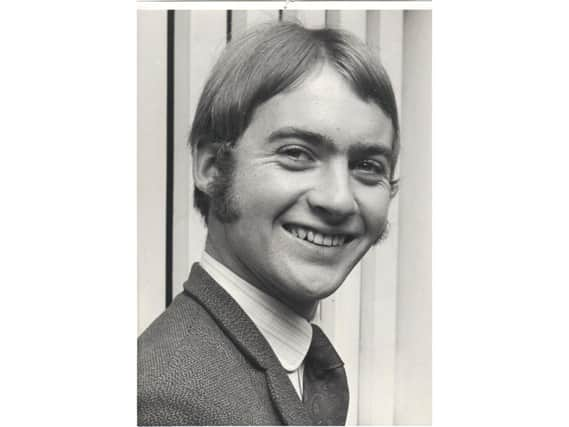LOOKING BACK - April 9, 2020 edition


Former Rugby Advertiser reporter John Phillpott remembers the building where once it was page proofs that were being pulled rather than pints…
Whenever I pay a visit to my old home town of Rugby, lunchtime will invariably find me enjoying a pint and a plate of fish and chips at the Rupert Brooke in Castle Street.
Advertisement
Hide AdAdvertisement
Hide AdIf you go online, you will see that this building was once the site of an indoor market.
Ah yes, but before that, I can tell you that it was also something else, too… the print works of the Rugby Advertiser.
When I started work in 1965 as a junior reporter, I was often ordered by senior editorial staff in the Albert Street office premises to take messages to the print shop overseer across the road.
It was another world. From an office that merely hummed with the sounds of tapped typewriters and sporadic conversations, I was plunged into a cacophonous environment which reverberated to the sound of clattering linotype and monotype machines, over which an unholy choir of almost exclusively male voices would be shouting instructions.
Advertisement
Hide AdAdvertisement
Hide AdThe air, reeking of a mixture of ink, oil and hot metal – and following the ‘dinner break’ the sweet smell of beery breath - would be also be thick with sky blue cigarette smoke.
And it was during those early beginnings in journalism that I learnt to work with what were then the top predators in the industrial jungle… the printers.
In those days, these highly skilled workers were indeed top of the food chain. Because of their muscle – in a dispute, they could stop production at the flick of a switch - they commanded relatively high wages.
Their operation of a ‘closed shop’, then par for the course across the whole of British industry, meant that printers tended to regard journalists with suspicion.
Advertisement
Hide AdAdvertisement
Hide AdSo you might think a young lad with a Beatle haircut, teenage spots and exhibiting an understandable element of youthful bewilderment, would be fair game for such denizens of the deep.
Yet this was not the case. They may have been a bit intimidating to someone like myself who, only weeks before, had nothing more daunting than the school bully to deal with, but to a man they had hearts of gold.
There was Derek Medlicott, Len Tarbox, the Leeson brothers, Fred Pulham, Harry Duffle, Malcolm Crick, Ron Barton… how those names come ringing back down the decades.
I particularly remember Derek Medlicott, your proverbial rough diamond with a heart of gold. I vividly recall how I was once told to deliver a note to him from then editor John Lawson.
Advertisement
Hide AdAdvertisement
Hide AdNever one to mince his words, he told me to tell Mr Lawson that he could stick his message where the sun didn’t shine.
Upon returning to the editor’s inner sanctum, Mr Lawson insisted I give him Mr Medlicott’s reply. Despite all my nervous prevaricating, he pressed the point until I blurted out exactly what he had said, expletives and all.
It suddenly went very quiet. Then Mr Lawson spun round on his swivel chair, fixed me with his bright blue eyes, and said in characteristically clipped tones: “Thank you John Phillpott. That will be all.”
However, we will return to Rupert Brooke, the doomed First World War poet, and one of Rugby’s most famous sons. His birthplace – number 5, Hillmorton Road – is always on my itinerary whenever I visit.
Advertisement
Hide AdAdvertisement
Hide AdBut what I didn’t know until recently was that my cousin Jane Sims lived with her parents and sister Judith in this house at some stage during the late 1940s and early 1950s.
Jane, who now lives in Old Bilton, mentioned this in a telephone conversation after I’d told her about a book I’d just read chronicling Brooke’s short life by author Nigel Jones.
And not just that, the statue of the floppy-haired poet stands directly opposite my late maternal grandmother’s house in Regent Street, Rugby. Life is indeed full of strange coincidences.
The hostelry itself is a Wetherspoon’s pub and whenever I visit, my mind invariably starts thumbing through all those dusty old files… back to the days when instead of cooking smells, the air hummed to the sounds of a long-dead craft, when industrial dinosaurs strode the earth, unaware that extinction beckoned.
Advertisement
Hide AdAdvertisement
Hide AdThey call them the good old days. And I’ll tell you why… because that’s what they were.
Footnote: John Phillpott’s book about his days as a reporter on the Rugby Advertiser titled Go and Make the Tea, Boy! is due to be published this spring.